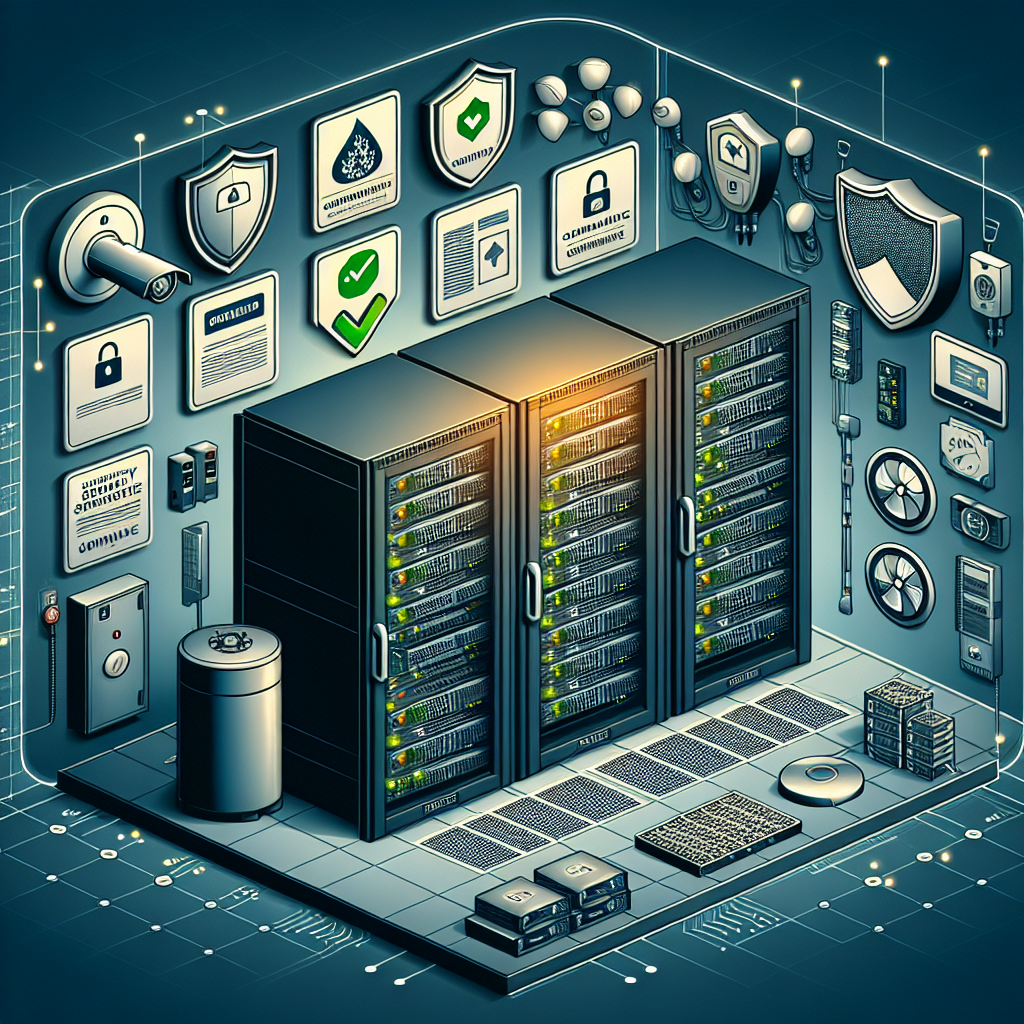In today’s digital age, data centers play a crucial role in storing and processing vast amounts of sensitive information. From personal data to financial records, organizations rely on data centers to keep their valuable data safe and secure. However, with the increasing threat of cyberattacks and data breaches, ensuring compliance with data center regulations and standards is more important than ever.
Data center compliance refers to adhering to a set of rules, regulations, and industry standards that govern the management and security of data stored in a data center. These compliance requirements are designed to protect sensitive information from unauthorized access, data loss, and other security risks. By complying with these regulations, organizations can reduce the risk of data breaches and maintain the trust of their customers, partners, and stakeholders.
One of the key roles of data center compliance is safeguarding sensitive information. Data centers store a vast amount of confidential data, including personal information, financial records, and intellectual property. Without proper compliance measures in place, this data is at risk of being compromised by cybercriminals or malicious insiders. By implementing strict security controls, encryption protocols, and access management policies, organizations can ensure that their sensitive information is protected from unauthorized access and misuse.
In addition to protecting sensitive information, data center compliance also helps organizations meet legal and regulatory requirements. Many industries, such as healthcare, finance, and government, have strict data protection laws that govern how organizations must store and secure sensitive information. Failure to comply with these regulations can result in hefty fines, legal penalties, and reputational damage. By following data center compliance standards, organizations can demonstrate their commitment to data security and avoid costly compliance violations.
Furthermore, data center compliance can also enhance business continuity and disaster recovery efforts. By implementing robust backup and recovery processes, redundancy measures, and disaster recovery plans, organizations can ensure that their data remains accessible and secure in the event of a natural disaster, cyberattack, or system failure. Compliance standards such as ISO 27001 and SOC 2 require organizations to have contingency plans in place to mitigate the impact of unforeseen events and ensure the continuity of their operations.
Overall, data center compliance plays a critical role in safeguarding sensitive information and protecting organizations from data breaches and security threats. By adhering to industry regulations and standards, organizations can demonstrate their commitment to data security, maintain the trust of their stakeholders, and mitigate the risks associated with storing and processing sensitive information. As the threat landscape continues to evolve, data center compliance will be essential in ensuring the safety and security of valuable data.


Leave a Reply